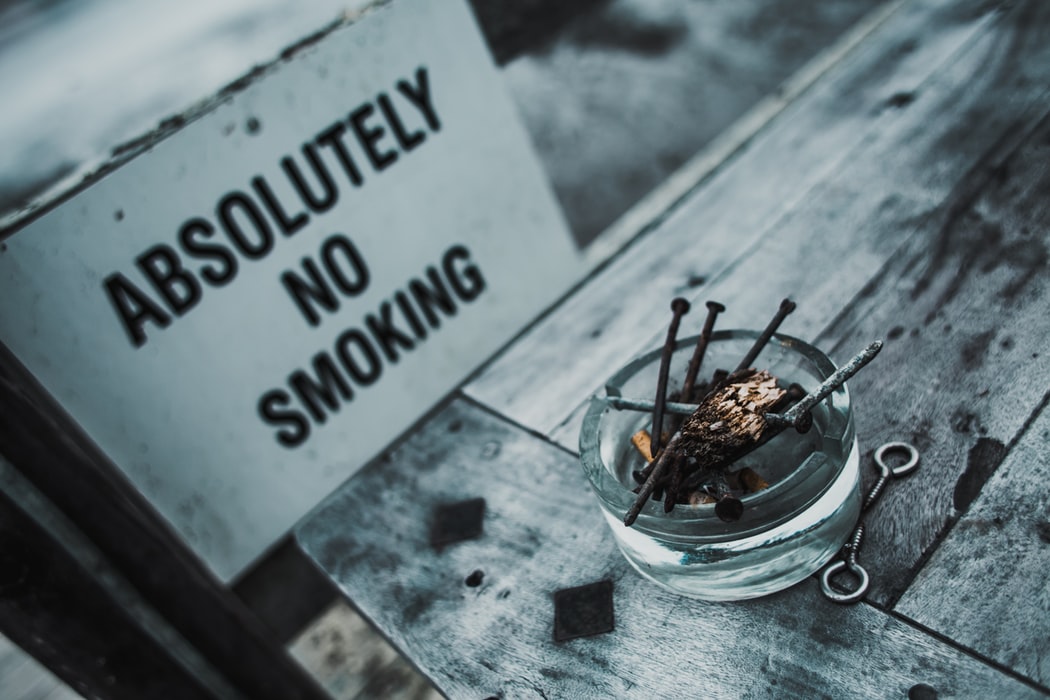Perhaps we have had a stressful period in our lives and we decided to take up smoking to tackle the anxiety. However, after just a few years, smokers realize the full scale of the detrimental effect cigarettes is leaving on their health. Shortness of breath, a foul smell coming from your mouth, and yellow teeth are just some of the downsides to smoking. Deciding to quit seems like a reasonable decision but this is easier said than done. You will need all the willpower and help you can muster in order to quit smoking for good. Like every other struggle in life, it is best if you did everything one step at a time.
Answering the “why”
In order to stop smoking, you need to be motivated and this is achieved solely through education. Learning and knowing what all the downsides to smoking are will help you stay on target. There isn’t an organ inside your body that is not affected by smoking, starting from the lungs. Furthermore, when you stop smoking, wondrous changes will start occurring. Within mere 12 hours, carbon monoxide will be out of your bloodstream and after a full week, your taste and smell buds will be back to normal. After one year elapses, your lungs will restore the full functionality again and you can even take up sports at a professional level (if you wish to, of course).
Coping with withdrawal symptoms
Once you have lit up that last cigarette, your body will crave for more. The ensuing battle of your mind versus your body can be described through withdrawal symptoms that you have to be ready for. Expect the worst of the symptoms to occur the very first week you quit. These include but are not limited to: getting easily irritated, bouts of depression, fluctuating appetite, constipation, insomnia, etc. For all of these symptoms, you have to discover countermeasures, like going for a long walk to combat depression. Also, try to stay away from alcoholic beverages and overeating, as combined, they pose the threat to break your willpower.
Finding a temporary sub
At first, the addiction to nicotine is purely mental but over time, things get physical. Even if you develop a strong determination to quit, your body might disagree and you can end up in pain. That is why you can fool your habit by vaping. Instead of nicotine, tar, carbon monoxide, and other harmful substances found in cigarettes, e-cigarettes involve only the use of vape. This is nothing more than aromatized steam that you blow off, pun definitely intended. You get to choose different e liquid and mods to pair up the starter kit that will help you ease the transition from cigar smoke to vapor.
Defusing the trigger
We are all triggered by different things and the same goes for relapsing. There are certain sights and activities that our brain associates with smokes and sends a strong signal to light up. You have to identify these triggers and try to avoid them at less during the first couple of weeks after you quit smoking. For most people, drinking a cup of coffee and lighting up a cigarette goes hand in hand. We are not suggesting you ditch coffee altogether but merely prepare yourself that the next cup will be odorless. Also, don’t be tempted to light up after a big meal, while on the phone or just because you are bored. Stress is a huge trigger for smoking so don’t calm your nerves down with a cigar but seek for an alternative.
You’re not alone
We wanted to list “friends who smoke” as yet another trigger but your clique can actually be a great source of support. People closest to you will understand your struggle and help you get through the rough patch. Your friends and fault who do not smoke have probably long been waiting for you to quit. The same goes for your smoker friends as trust as when we say that most of them are planning on quitting themselves in the near future. If you are finding it super hard not to reach for a pack of cigarettes, ask your friends to hide them from you and not let you smoke under any circumstances.
Quitting for good
Statistics show that at least 2 out of 5 smokers who quit relapse at some point in time. In order not to become part of these figures, your plans to give up smoking need to be long-term ones. It is perfectly OK to relapse a few times after you have tried to quit for the very first time but once a certain period passes, actively resist the craving. Constantly remind yourself of the benefits of leading a smoke-free life.
If you adhere to the 6 steps listed here, you are bound to quit smoking and quirt it for good! Just bear in mind that the smoke-fiend will always be lurking so be prepared to resist the temptation to light up “just one more” cigarette.




